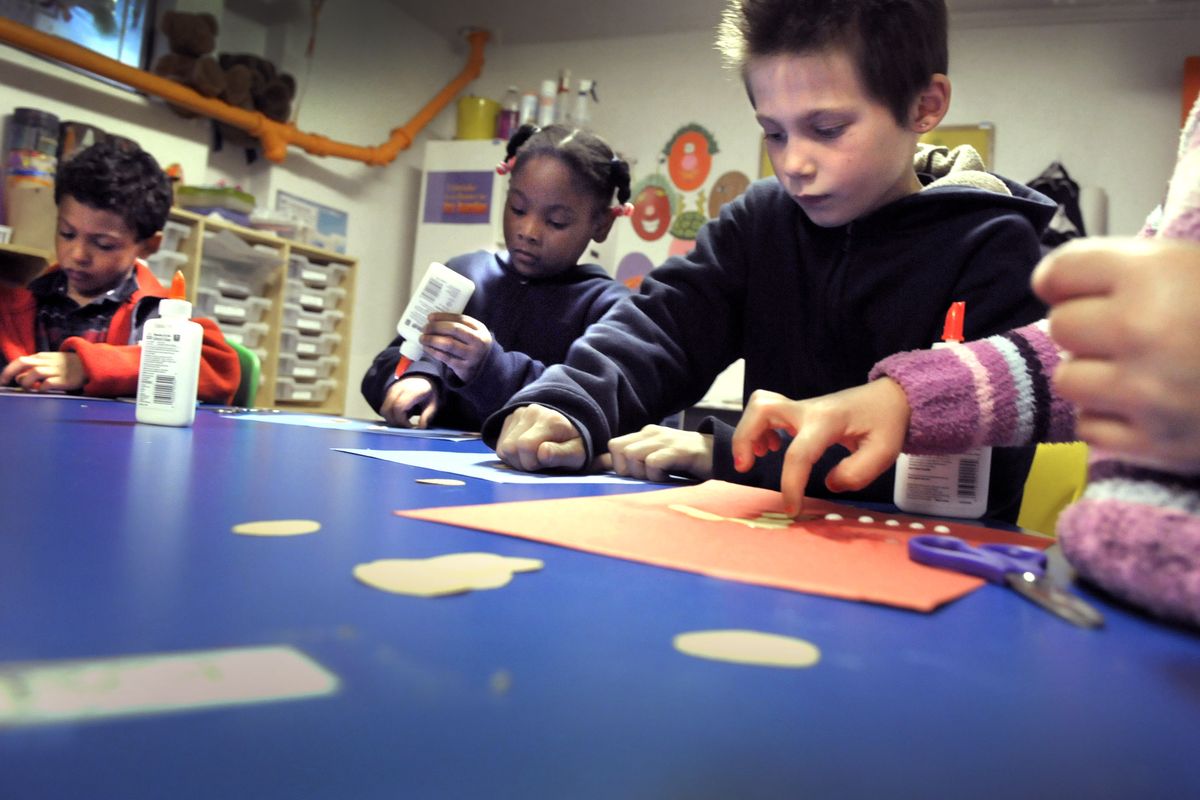Imagining possibilities
Featured Women Helping Women speaker to share story of going from homeless to a Harvard education

Liz Murray was 17 and trying – without success – to talk her way into alternative high schools in New York. In her pocket, she possessed enough money for a slice of pizza or subway money to the next interview.
“It seems ridiculous to think: ‘Do I go to the pizza or the interview?’ ” she says. “But the thinking in poverty is, ‘If they are going to say no anyway, it’s a loss of the food, and I need food.’
“As I’m standing there teetering back and forth, I thought, ‘What if this is the one that says yes?’ I said, ‘Screw the pizza.’ I went to the interview, and it was the one.”
Murray got into the Humanities Preparatory Academy, a public alternative school. She went on from there to Harvard University. In 2003, the Lifetime movie “Homeless to Harvard” was adapted from her life story.
On Monday, Murray will be in Spokane as the featured speaker at the Women Helping Women luncheon, an annual event that raises money for programs that help women and children.
The Women Helping Women board wanted a speaker this year who “has been in the crucible, and through the help of others, survived and inspired others,” said Sima Thorpe, board president.
Murray fits the bill – perfectly.
She grew up in the Bronx, the daughter of brilliant but troubled parents. Her mother was schizophrenic and legally blind. Her father, who had once been in a Ph.D. program in psychology, got derailed by obsessive compulsive disorder. Both were also drug addicts.
By 15, Murray was homeless. Her mom was dead from AIDS. Her father would eventually die from it, too.
Getting into Humanities Preparatory Academy rebooted her young life.
“It was an alternative high school that treated kids like it was a private school,” she said in a recent phone interview.
“They approached kids from not what was broken in them, but what was possible in them.”
On a school field trip to Harvard, Murray had an epiphany.
“If you come from poverty, you often can’t see yourself inside people who are successful. I just assumed there was something lesser in me,” she said.
But she looked at the college students surrounding her that day and thought, “If somebody is going to get into Harvard, have a fulfilling life, why can’t that someone be me?”
She finished high school in two years and got into Harvard. She left in 2003 to care for her dying father. Murray attended Columbia University while in New York but ultimately returned to Harvard, where she earned a psychology degree.
Murray is now 29, living in Manhattan. She’s written a book about her life, “Breaking Night,” due out in September. The title is a slang term for staying up through the night until the sun rises.
“When we were homeless, my friends and I, we didn’t see ourselves as homeless,” Murray explained. “We were just ‘breaking night.’ ”
Murray travels worldwide for her inspirational speaking gigs. Closer to her Manhattan home, she leads personal growth workshops through her company, Manifest Trainings.
Asked if she has forgiven her parents, Murray says there was nothing to forgive.
“They were sick. They had the disease of addiction,” she said.
“I don’t hold anger in my heart for them. My mother was persistent and relentless. My dad loved education and literature. They just went the wrong way.
“I love them dearly,” she said. “And I experienced myself as deeply loved as a child.”
At Monday’s luncheon, tables have been set aside for alternative high school students and students going through some of the challenges Murray faced as a teen. The idea originated with Women Helping Women co-founder Mari Clack, Thorpe said.
“It started out as two tables, and now it’s six,” she said. “We have a patchwork of underwriters.”
Murray was thrilled to hear about the young attendees. Her main message to them?
“If you have people telling you, ‘You can’t do that, it’s not possible,’ remember, no one really knows what’s possible until you try to do it,” she said.
“Put yourself into things, one choice at a time. Put yourself in a place of possibility.”